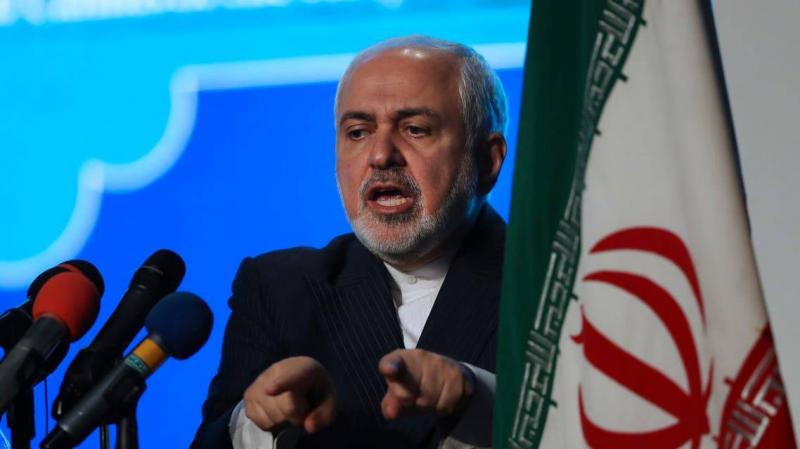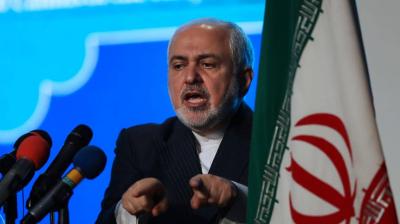These days, nuclear negotiations are intertwined with the upcoming presidential elections as a result of the persistent power struggle that has not ceased since the establishment of the theocratic regime over four decades ago in Iran. Supreme Leader Ali Khamenei reaffirms his absolute authority by steering the conflict in favor of the rule of the clerical establishment. The recent leak involving Iranian Foreign Minister Mohammad Javad Zarif, along with what has been published about a message sent by the head of foreign policy and architect of the nuclear negotiations in Vienna to Khamenei, comes within the context of the pressures exerted on the weary diplomat, who has spent eight years under a system where the dominance of the military and on-ground developments has become clear in all facets of its foreign policy.
**Pressures on Zarif**
In the same vein of pressures being exerted on Zarif, observers speculate that there is an effort to push him not to run in the upcoming presidential elections in June. Zarif is facing widespread attacks from hardliners, in addition to the official media in the country, which are known to operate under the Supreme Leader's influence. This perhaps prompted him to seek refuge in his "message" to the system's leader, indicating that negotiations cannot proceed without his green light. He confirmed that he does not wish to turn the Vienna talks—should they succeed—into a tool for his benefit in the upcoming presidential elections, but rather wants to ensure their success and that he will not run for the position.
**Media Attacks**
President Hassan Rouhani criticized the state radio and television for recently rebroadcasting the documentary "Endgame" about the nuclear deal, which was recorded two years ago and criticizes the agreement. It is noted that the state media, which encompasses dozens of channels and radio stations, is under the control of the Supreme Leader, who personally appoints its director as part of his absolute constitutional powers. Khamenei usually selects a hardline element from the principlists to manage this media institution, which is the largest in the country. The Iranian Foreign Ministry has recently issued statements describing the official media reports as fictitious, accusing them of deliberately obstructing the revival of the nuclear agreement.
**Hardliners, Vienna, and Elections**
From observing hardline media, it is clear that extensive segments of principlists believe that negotiations to revive the nuclear agreement in Vienna by Rouhani's government, which is supported by moderates and reformists, will harm them in the upcoming presidential elections scheduled for June. They feel that if the Vienna talks succeed, it could lead to increased support for the other (moderate) stream in the elections, especially since hardliners control parliament and plan to win the presidential seat to achieve cohesion between the executive and legislative powers, thus eliminating the reformist movement forever and ending the power struggle in their favor.
**Polls**
It is noteworthy that although opinion polls indicate a likely widespread boycott of the presidential elections, similar to what occurred in the recent legislative elections where winning candidates garnered fewer votes, some statistics suggest Zarif enjoys higher popularity compared to other potential candidates. In a survey by (ISPA), Zarif received the most support after Ibrahim Raisi, Hassan Khomeini, and Mohammad Baqer Qalibaf, should they choose to run for president. Despite this, another poll conducted by (ISPA), close to the authorities, showed that only 39% of Iranians would participate in the presidential elections, while 68% stated they were uninterested. Conversely, opposition sources believe that the boycott will be unprecedented compared to previous elections, and the next Iranian president will win with the lowest votes since 1979.




